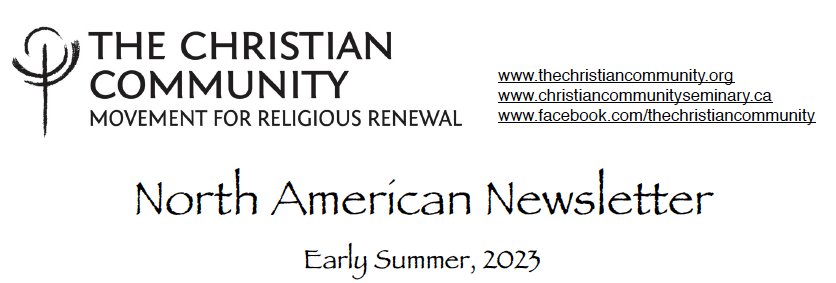St. John’s Tide
“From You come light and strength,
To You stream love and thanks.”
These two sentences from a children’s prayer[1] encompass everything that is divine service and human service—or rather, should be.
God serves His creation ceaselessly with light and strength. Not only the inexhaustible light of the sun and the life forces of nature, but also the light of our consciousness and our life forces—we owe it all to Him. God’s religion—that is His creation.
The only appropriate answer to this gift is love and thankfulness.
Light and strength from God—love and thankfulness from the human being. That is the golden chain that connects us with each other.
As long as humanity has been conscious of its origin and future, people have served God with this answer at all the altars on earth. Perhaps this time, our era, is the only one in the history of humanity in which it is no longer self-evident to serve God in this way. We no longer realize to whom or what we owe the light of our consciousness and our life forces.
Our sciences teach us that the laws of physics and chemistry carry and order life on earth. Our daily existence is the product of these sciences, which teach us to act quickly, efficiently, purposefully, and especially to make a profit on everything. But if love for God and thankfulness to God die out on earth, the golden chain is broken. What will then happen on earth?
Are we perhaps already seeing the consequences of our lovelessness and our thanklessness in the mirror of nature, which is falling into chaos? Or is nature, God’s creation, His answer to the chain that is broken?
Be that as it may, if there is anything that is lacking in our chaotic era, it has to be our answer of love and thankfulness. And if this answer does not come from all of us, as it did as of old, then at least from some places on earth where individuals gather at the altar to profess with heart and soul:
“To the Father God shall stream our soul’s devoted and heart-warm thanks.”[2]
-Rev. Bastiaan Baan, June 2023
[1] Verse for the children in the first grade of the Waldorf School.
[2] From the Epistle of St. John’s Tide.

